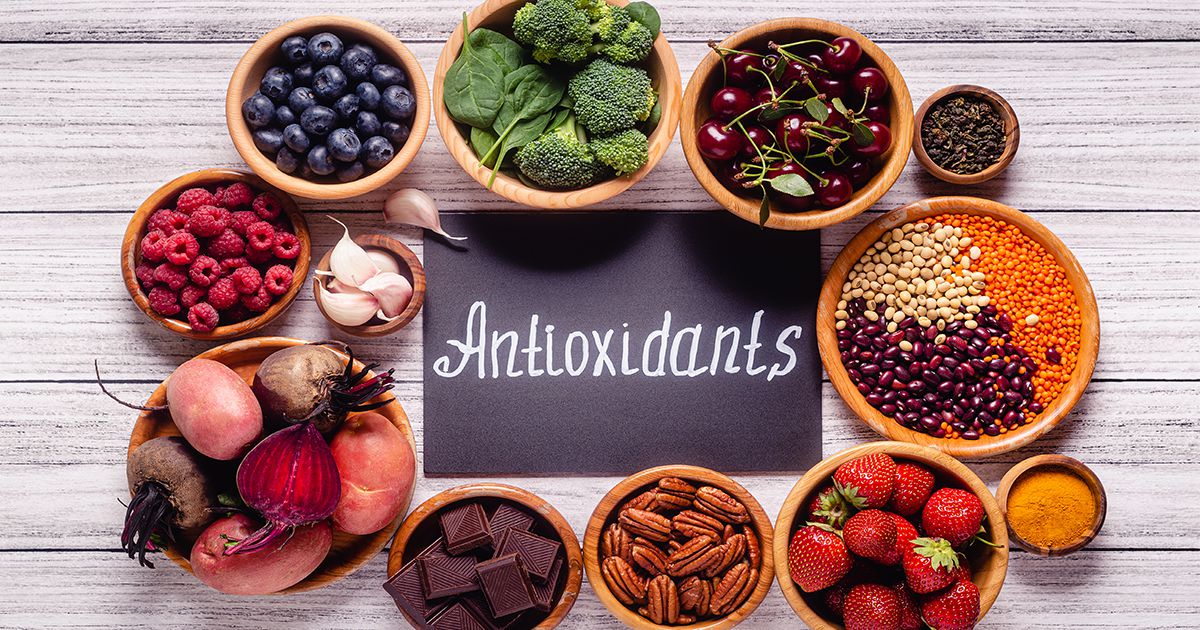In the pursuit of a healthier lifestyle, one term continually finds its way into conversations: antioxidants. These powerful compounds have garnered attention for their potential health benefits and their ability to combat oxidative stress within the body. While their name might seem complex, their role in promoting well-being is nothing short of remarkable.
Antioxidants are a diverse group of molecules that work tirelessly to neutralize harmful molecules called free radicals. Free radicals are highly reactive substances produced naturally in the body during metabolic processes or introduced through external factors like pollution, cigarette smoke, and UV radiation. When free radicals outnumber the body’s antioxidant defenses, they can cause oxidative stress, leading to cellular damage and a range of health issues.
The incredible strength of antioxidants lies in their ability to donate electrons to free radicals, stabilizing them and preventing them from causing further harm. These compounds act as the body’s defense system, protecting cells from oxidative damage and reducing the risk of various chronic diseases.
One of the primary sources of antioxidants is found in the foods we consume. Vibrantly colored fruits and vegetables such as berries, spinach, kale, tomatoes, and bell peppers are packed with antioxidants like vitamins C and E, beta-carotene, flavonoids, and polyphenols. Additionally, other foods like nuts, seeds, whole grains, and even certain spices like turmeric and cinnamon are rich in these beneficial compounds.
The benefits of antioxidants extend far beyond their ability to combat oxidative stress. Research suggests that a diet abundant in antioxidants may lower the risk of several chronic conditions, including heart disease, certain cancers, and neurodegenerative diseases like Alzheimer’s. Furthermore, they are believed to support healthy aging by reducing inflammation, boosting the immune system, and promoting overall cellular health.
Vitamin C, one of the most well-known antioxidants, plays a crucial role in collagen synthesis, wound healing, and immune function. Vitamin E, another potent antioxidant, protects cell membranes from damage and supports healthy skin. Meanwhile, flavonoids and polyphenols present in tea, red wine, and dark chocolate exhibit anti-inflammatory and heart-protective properties.
In addition to their role in preventing disease, antioxidants have garnered attention for their potential in improving skin health and reducing signs of aging. Many skincare products now boast antioxidant-rich formulations, harnessing their ability to neutralize free radicals and protect the skin from environmental damage.
While the benefits of antioxidants are undeniable, moderation and variety in the diet are key. Relying solely on supplements may not provide the same benefits as obtaining antioxidants from whole foods. Moreover, different antioxidants work in synergy, enhancing each other’s effectiveness, emphasizing the importance of a diverse and balanced diet.
In the realm of health and wellness, antioxidants stand as stalwart defenders against cellular damage and disease. Their presence in our diets serves as a reminder of the profound impact nutrition can have on our overall well-being. As research continues to uncover their potential, embracing a diet rich in these health guards can undoubtedly contribute to a healthier and more vibrant life.
Conclusion
Antioxidants are not just a buzzword; they are the unsung heroes safeguarding our health, one cell at a time. Incorporating a rainbow of antioxidant-rich foods into our daily meals is a simple yet powerful step toward fortifying our bodies against the perils of oxidative stress and reaping the myriad benefits they offer for a healthier and happier life.

